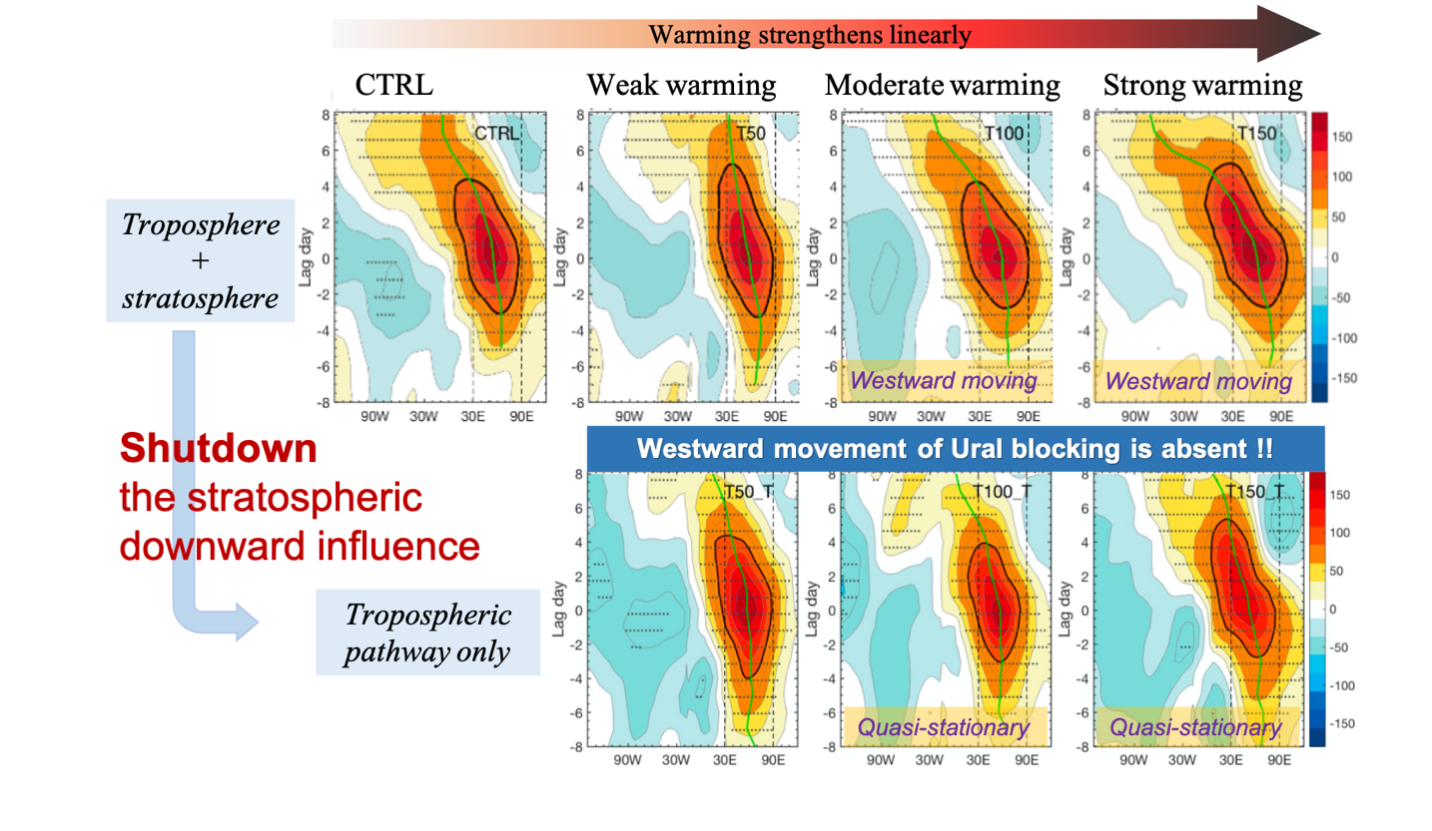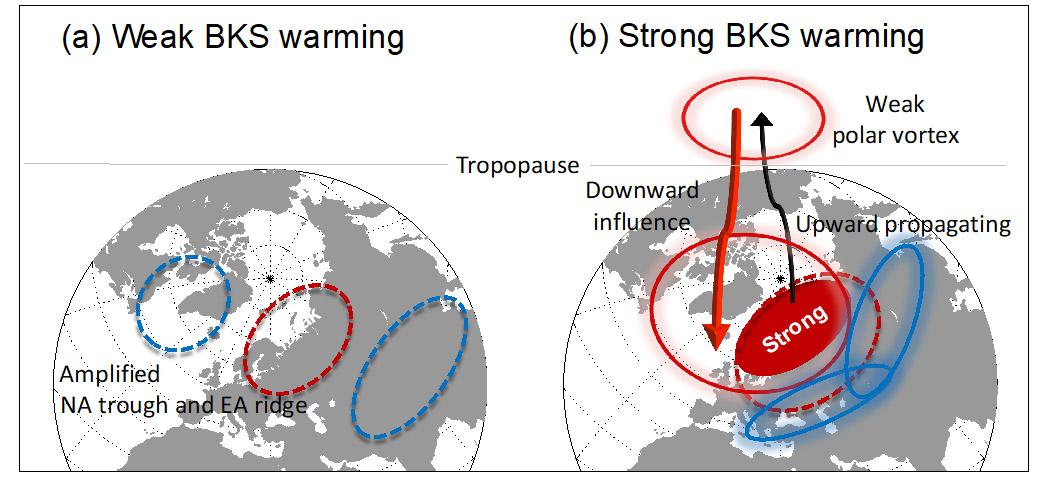Ural blocking (UB) – a persistent and large-scale anticyclone around the Ural Mountains – is intimately tied to the cold surges in the Eurasian mid-latitudes. A quasi-stationary and long-lived UB usually leads to extreme cold weather over mid-latitude Eurasia. Arctic sea ice decline and the associated enhanced warming over the Arctic are observed in the recent four decades, which has been previously suggested to prolong UB's duration and reduce its movement. These results have been gradually applied in weather forecasting.
However, westward-shifting and short-lived UBs are found in the recent winters with extreme low sea ice conditions over the Barents-Kara Seas (BKS). This phenomenon, opposite to previous notions, appeals to research interest from CHEN Xiaodan, a Ph.D. student of the Institute of Atmospheric Physics (IAP). She investigated UB's responses to the early winter BKS warming with different warming strengths. The study, supervised by her advisor Prof. LUO Dehai (IAP) and published in
Journal of Climate, is also in collaboration with Dr. Yutian
WU (Columbia University), Dr. Etienne DUNN-SIGOUIN (Bergen University), and Dr. Jian LU (Pacific Northwest National Laboratory).
"We are impressed by a striking non-monotonic response of UB, and try to reveal the underlying role of the stratospheric pathway in the zonal movement of UB in this study," said CHEN.
Using a set of atmospheric circulation simulations, they found that UB persistence over the Ural Mountains is first prolonged and then shortened as BKS warming gradually strengthens. In the case of weak BKS warming, the meridional gradients of background temperature and potential vorticity are reduced around the Ural Mountains but increased in the upstream area (Figure 1), leading to weak energy dispersion and less retrogression of UB, which results in a long-lived and quasi-stationary UBs. In this case, the stratospheric pathway is inactive; thus, the background circulation changes and UB responses are mainly attributed to the tropospheric pathway.
Figure 1. Distinct responses of the atmospheric circulation to weak BKS warming and strong BKS warming. (Image by CHEN Xiaodan)
When the BKS continues to warm, amplified tropospheric planetary waves propagate upward into the stratosphere and weaken the stratospheric polar vortex in the early winter, which is distinct from the case of weak BKS warming (Figure 1). The downward influence of the weakened stratospheric polar vortex leads to easterly anomalies in midlatitudes from the North Atlantic to Europe in winter, which promotes the westward-movement of UB. After the stratospheric pathway is artificially shut down in the simulations, the westward-movement of UB disappears in the case of strong BKS warming (Figure 2). In other words, the background circulation response resulted from the tropospheric pathway favors long-lived and quasi-stationary UBs, while the downward influence of the stratospheric pathway promotes the westward shift of UBs. This finding may have important implications for wintertime weather forecasting in the future.

Figure 2. The westward movement of Ural blocking largely disappears when the stratospheric pathway is shut down. (Image by CHEN Xiaodan)
This work mainly acknowledges the Chinese Academy of Sciences Strategic Priority Research Program (Grant XDA19070403) and the China Postdoctoral Science Foundation (BX20200087).
Article information:
Chen, X., Luo, D., Wu, Y., Dunn-Sigouin, E., & Lu, J. (2021). Nonlinear Response of Atmospheric Blocking to Early Winter Barents–Kara Seas Warming: An Idealized Model Study, Journal of Climate, 34(6), 2367-2383. DOI: https://doi.org/10.1175/JCLI-D-19-0720.1


